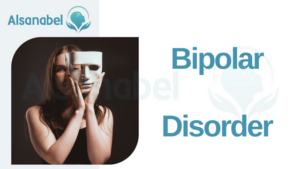Understanding Mood Disorders 2023
- Category achieve mental well-being
Understanding Mood Disorders
When it comes to mental health, understanding mood disorders is crucial. It allows individuals to recognize and address their struggles or support those around them. Mood disorders, such as depression and bipolar disorder, can have a significant impact on a person’s emotional well-being.
What are Mood Disorders?
Mood disorders are a group of mental health conditions characterized by significant changes in mood, energy levels, and overall emotional state. They can affect anyone, regardless of age, gender, or background, and can disrupt relationships, work productivity, and quality of life.
why is it important to understand them?
- Increased Awareness:By understanding mood disorders, individuals can become more aware of their own mental health and recognize potential signs and symptoms. This allows for early intervention and seeking appropriate support and treatment.
- Reducing Stigma:Educating oneself about mood disorders helps to break down the stigma and misconceptions surrounding these conditions. It promotes compassion, empathy, and understanding towards individuals experiencing mood disorders.
Common types of Mood Disorders
- Depression:Major depressive disorder is characterized by persistent feelings of sadness, loss, or hopelessness. It can significantly impact daily functioning and quality of life.
- Bipolar Disorder:Bipolar disorder involves recurring cycles of depressive episodes and manic or hypomanic episodes. These extreme shifts in mood can result in drastic changes in energy levels, behavior, and thinking patterns.
- Anxiety Disorders:Although anxiety disorders are not strictly classified as mood disorders, they often coexist with mood disorders. Anxiety disorders can contribute to and worsen symptoms of depression or bipolar disorder.
Read more:
Major Depressive Disorder

Definition and symptoms of Major Depressive Disorder
Major Depressive Disorder, commonly known as depression, is a mood disorder characterized by persistent feelings of sadness, hopelessness, and a lack of interest or pleasure in daily activities. It is more than just a temporary feeling of sadness; it is a serious medical condition that affects a person’s physical well-being.
Symptoms of Major Depressive Disorder can vary from person to person but may include feelings of sadness, irritability, loss of appetite, weight changes, disturbed sleep patterns, fatigue, and difficulty concentrating or making decisions. These symptoms can be severe and can significantly impact a person’s ability to function in their daily life.
Causes and risk factors associated with Major Depressive Disorder,
The exact cause of Major Depressive Disorder is unknown. However, it is believed to be a combination of genetic, environmental, and psychological factors. Some common risk factors associated with depression include a family history of depression, certain medical conditions, chronic stress, trauma or abuse, and certain medications.
It is important to note that anyone can develop Major Depressive Disorder, regardless of age, gender, or socioeconomic status. It is a complex condition that requires professional diagnosis and treatment.
If you or someone you know is experiencing symptoms of depression, it is important to seek help from a healthcare professional. Treatment options may include therapy, medication, lifestyle changes, and support from loved ones.
Understanding and recognizing the signs and symptoms of Major Depressive Disorder is the first step towards seeking help and finding effective treatment. Remember, you are not alone, and there is support available to help you through this challenging time.
Anxiety Disorders
Anxiety disorders are common mental health conditions that affect millions of people around the world. These disorders are characterized by excessive and persistent feelings of fear, worry, and unease. Understanding the relationship between anxiety disorders and mood disorders can help individuals get the appropriate treatment and support they need.
Relationship between Anxiety Disorders and Mood Disorders
Anxiety disorders and mood disorders often coexist and can have overlapping symptoms. Individuals with anxiety disorders may experience symptoms like restlessness, irritability, and difficulty concentrating, which are also common in mood disorders such as depression. It is not uncommon for someone with an anxiety disorder to also experience episodes of depression or vice versa. In some cases, anxiety disorders can even trigger or worsen mood disorders.
Differentiating between Anxiety Disorders and Mood Disorders
While anxiety disorders and mood disorders may share some symptoms, they have distinct characteristics that differentiate them. Anxiety disorders primarily involve excessive worry and fear, while mood disorders focus on disturbances in emotional states, such as depression or mania. Additionally, anxiety disorders tend to be more focused on specific triggers or situations, whereas mood disorders can occur without any apparent cause.
Understanding the nuances between anxiety disorders and mood disorders is crucial in determining the most effective treatment approach. Consulting with a mental health professional can help individuals receive an accurate diagnosis and develop an appropriate treatment plan tailored to their specific needs.
By raising awareness and providing knowledge on anxiety disorders and mood disorders, we can support those who may be experiencing these conditions and help them seek the necessary help and support they need to achieve mental well-being.
Bipolar Disorder

Overview of Bipolar Disorder and its subtypes
Bipolar Disorder is a mental health condition characterized by extreme shifts in mood, energy, and activity levels. It is different from normal ups and downs as it involves periods of mania and depression that can last for along time. There are several subtypes of Bipolar Disorder, including Bipolar I, Bipolar II, and Cyclothymic Disorder. Each subtype is distinguished by the severity and duration of the mood episodes experienced.
Signs and symptoms of Bipolar Disorder,
Individuals with Bipolar Disorder may experience periods of mania, which is characterized by elevated mood, increased energy, and impulsive behavior. During a manic episode, they may engage in risky activities, have racing thoughts, and experience a decreased need for sleep. On the other hand, depressive episodes involve feelings of sadness, hopelessness, and loss of interest or pleasure in activities. Other symptoms of Bipolar Disorder include changes in appetite, sleep disturbances, difficulty concentrating, and irritability.
It is important to recognize the signs and symptoms of Bipolar Disorder, as early intervention and treatment can help individuals manage their condition and improve their quality of life. If you or someone you know is experiencing symptoms suggestive of Bipolar Disorder, it is recommended to seek professional help from a mental health specialist who can provide an accurate diagnosis and develop an appropriate treatment plan. Remember, there is support available, and seeking help is a sign of strength and courage.
Read more:
The effect of exercise on bipolar disorder 2023
How to recognize signs of Mood Disorders in others
Being aware of the signs of mood disorders can help you identify when a loved one may be struggling. Look out for these common symptoms:
- Changes in mood:Mood disorders often involve extreme shifts in emotions. Your loved one may experience prolonged periods of sadness or irritability, or they may swing between highs and lows.
- Loss of interest:A lack of interest in previously enjoyed activities is a potential indicator of a mood disorder. They may withdraw from social interactions and lose motivation in everyday activities.
- Changes in sleep patterns:Insomnia or excessive sleep can be signs of a mood disorder. Pay attention to any drastic changes in their sleep schedule.
- Weight or appetite changes:Significant changes in weight or appetite, such as sudden weight loss or gain, can indicate a mood disorder.
- Difficulty concentrating:Mood disorder can affect one’s ability to concentrate, remember things, or make decisions.
If you notice these signs in a loved one, it’s important to approach them with empathy and encourage them to seek professional help. Offer your support and be a listening ear as they navigate through their challenges.
Treatment Options for Mood Disorders

Therapeutic approaches for managing Mood Disorders
When it comes to treating mood disorders, there are various therapeutic approaches available to help individuals manage their symptoms and improve their quality of life. Some of these approaches include:
- Cognitive Behavioral Therapy (CBT):CBT is a widely used therapy that focuses on identifying and changing negative thought patterns and behaviors. It helps individuals develop healthier coping mechanisms and problem-solving skills.
- Dialectical Behavior Therapy (DBT):DBT is particularly effective in treating mood disorders characterized by intense emotional reactions. It combines individual therapy, group skills training, and phone coaching to help individuals regulate their emotions and strengthen their interpersonal skills.
- Interpersonal Therapy (IPT):IPT is a time-limited therapy that concentrates on addressing interpersonal problems and improving social functioning. This therapy helps individuals develop better communication skills, resolve conflicts, and build healthier relationships.
Medication and alternative treatments
In addition to therapy, medication can also play an important role in managing mood disorders. Antidepressants, mood stabilizers, and antipsychotic drugs are commonly prescribed to control symptoms. However, it’s essential to consult a healthcare professional who can determine the most appropriate medication and dosage for each individual’s specific needs.
Alternative treatments, such as regular exercise, mindfulness meditation, and acupuncture, can also be beneficial in managing mood disorders. These therapies have shown promise in reducing symptoms and promoting overall well-being. However, it’s important to remember that alternative treatments should complement, not replace, conventional medical treatments.
Seeking professional help and maintaining a support system are crucial for individuals with mood disorders. Treatment plans should be tailored to the individual’s needs and monitored regularly to ensure effectiveness. With the right combination of therapy, medication, and self-care strategies, individuals can achieve a better quality of life and effectively manage their mood disorders.
Understanding the importance of awareness and destigmatization
It is important for individuals to be educated about mood disorders to combat the myths and misconceptions that surround these conditions. By spreading awareness, we can promote a better understanding and encourage empathy and compassion towards those who are struggling with them. Additionally, destigmatizing mood disorders can help individuals feel more comfortable seeking help and support, reducing barriers to treatment and improving mental health outcomes.
Resources and support for individuals with Mood Disorders
Fortunately, there are numerous resources and support networks available for individuals with mood disorder. These can include therapy, counseling, support groups, helplines, and online communities. It is essential for individuals to reach out and access these resources to find the help and support they need. By seeking professional help and connecting with others who are going through similar experiences, individuals with mood disorder can find comfort, understanding, and guidance on their journey towards recovery.
In conclusion, by understanding the importance of awareness, destigmatization, and accessing available resources and support, we can create a more inclusive and supportive environment for individuals with mood disorder.









